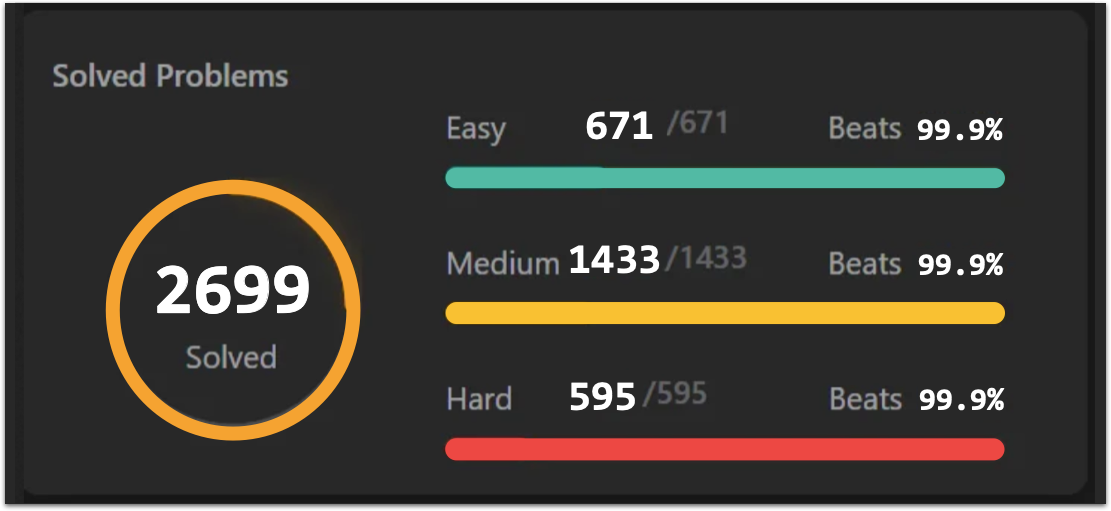"Just Grind LeetCode!" | Here's what this strategy is missing
Updated:

TL;DR: Relying solely on the 'Just grind LeetCode' mantra for acing tech interviews might not be as effective as you'd imagine. Real interviews demand skills like context-switching, time-management, writing code under pressure, explaining your approach, and solving non-algorithmic problems, all without a solution manual at your disposal. Imagine learning to juggle with just a single ball, then finding yourself in a high-stakes circus act, juggling eight different objects of varying weights and shapes. That's the difference between grinding LeetCode and doing real interviews. More realistic preparation could make a world of difference. Intrigued? Read on to learn more, and discover a new AI-powered platform that can elevate your interview skills to the next level.
Bob's Tale: The Journey from LeetCode Warrior to Interview Novice
Have you ever heard of Bob's tale? Perhaps you know Bob, or maybe you are Bob. Bob is on a quest for a lucrative tech role, ideally with a prestigious FAANG company or a big hedge fund. His dream job pays handsomely, and he'd do anything to land it. Everywhere he turns, the advice is the same: "Just grind LeetCode."
Bob dives headfirst into this regimen, spending months on intense LeetCode sessions, sometimes forsaking aspects of his social life. "It's worth it," he muses, envisioning a future with a plush salary. A few months later, after solving hundreds of problems, earning all the badges, and climbing the contest rankings, Bob gets a handful of interview invitations from impressive companies (FAANG, hedge funds, investment banks, etc.). He aces the take-home assessments (they're not too different from his grinding sessions except for the stricter time pressure), but stumbles when he reaches the live coding rounds.
In the first interview, despite knowing the answer to the graph algorithm problem (a fusion of binary search and cycle detection), the context-switching between coding and answering interviewers' questions throws him off. He can't handle thinking, coding, and responding to both interviewers simultaneously. Furthermore, the second interviewer keeps giving him a look, as if he's making a mistake. Doubt creeps in. "Am I doing something wrong?" This mental juggling leads to mistakes.
Shaking off the first setback, Bob heads to the next interview, where he is not allowed to run his code. "But I need to run my tests to know if I'm correct," Bob thinks. However, they want him to write code that compiles without running the code. Bob has a minor division-by-zero error in his code, an oversight due to the pressure of writing perfect code the first time under the watchful eyes of two interviewers. "These hedge fund folks are on another level," Bob thinks to himself.
By the third interview, Bob feels prepared. He sails through the first round of algorithms and C++ questions but trips up during a code review session. Having never practiced spotting errors in others' code, he misses a critical issue and struggles to read other people's code. "Reading other people's code is different from writing code". He gets sent home early and doesn't make it to the final round.
In one interview, he froze. In another, the interviewer kept rushing him as he coded. In yet another, he couldn't understand the interviewer's accent and was too polite to say so, making him appear clueless. However, Bob eventually got used to the rhythm of real interviews and landed a job, although not his dream job, as he had already missed those opportunities.
The Neuroscience of Practice: Why Did Bob Struggle?
The gap between Bob's LeetCode practice and his real interview performance illustrates a common pitfall in tech interview preparation. Neuroscience explains this: practicing a task helps our brain form new neural pathways for efficiency. But when the context changes, performance can take a hit1. Bob's brain had to adapt to new demands - explaining his code, spotting bugs, managing time, and switching contexts.
LeetCode vs. Real-World Interviews: The Juggling Analogy
Now picture technical interviews as a complex juggling act. You need to know your tools, understand how to maintain balance, handle multiple tasks at once, and, of course, know how to recover when an unexpected item is thrown into the mix. Practicing with just a single ball will not prepare you for the unpredictable demands of a live performance. This is the flaw in the "Just grind LeetCode" mantra. It's akin to preparing for a complex juggling act with just a single ball. It simply doesn't prepare you for the full spectrum of challenges you'll encounter in real interviews.
Bridging the Practice-Reality Gap
How can you overcome this gap? The key lies in context-dependent memory: our brains are better at recalling information when the learning and retrieval contexts match. The more your practice simulates real interviews, the better you'll perform when it counts. This is where Coditioning comes in.
Coditioning offers a platform where you can practice under conditions that mirror real interviews. It expands your preparation beyond LeetCode's confines, helping you tackle a broad range of problems, explain your solutions under pressure, and code without running your program. By the time you get to your first interview, you'll be truly ready, and you can avoid wasting opportunities at your dream job – opportunities that you may never get again. Remember, practice makes perfect, but only when done under realistic conditions.